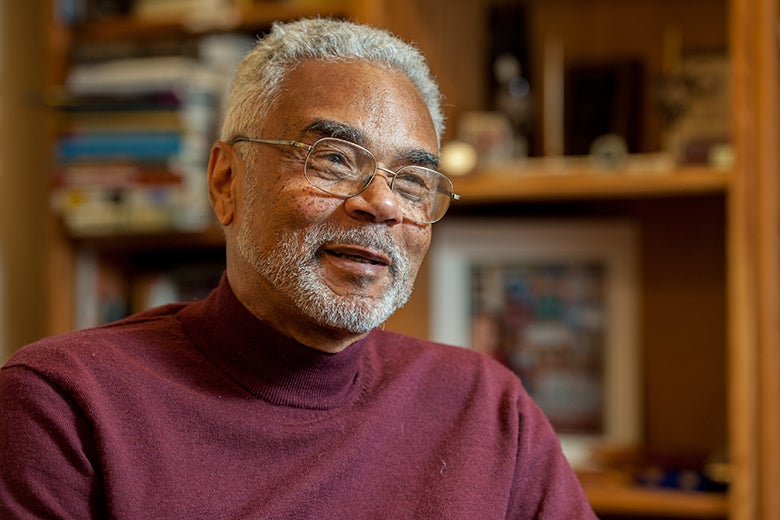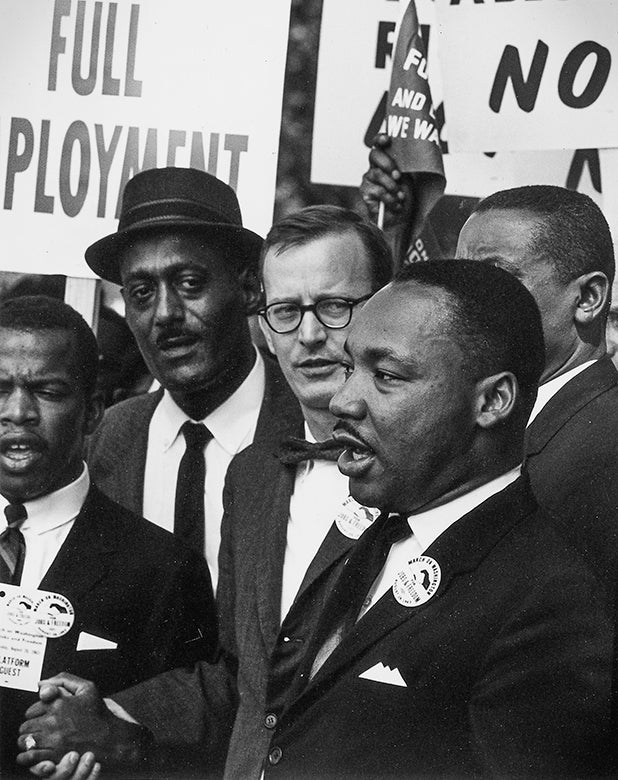Stanford’s Martin Luther King, Jr. Research and Education Institute offers a unique, extensive archive on the late civil rights leader’s work and legacy.
Go to the web site to view the video.
Stanford’s ties to Martin Luther King Jr. date back almost 50 years, when the late civil rights leader gave a speech in Memorial Auditorium titled “The Other America.”
In that lecture, delivered on April 14, 1967, just a year before he was assassinated, King talked about the racial injustice that was at the root of black poverty.
And for more than 30 years, Stanford has been at the forefront of scholarly efforts to maintain and share King’s legacy with scholars here on campus, and other scholars across the world. Through Stanford’s Martin Luther King, Jr. Research and Education Institute, King’s message of nonviolent activism and collective action is being passed on to a new generation.
One of only a few large-scale research ventures that focus on a single African American, the King Institute has catalogued more than 40,000 documents, such as letters to and from King and recordings of speeches and sermons, as well as published and unpublished writings.
Historian Clayborne Carson, the Martin Luther King, Jr., Centennial Professor at Stanford, has overseen the preservation and examination of these documents since 1985, when King’s widow, the late Coretta Scott King, asked him to edit and publish a definitive edition of her late husband’s writings and correspondence. Since then, the King Papers Project has produced seven volumes, and Carson has edited four additional books on King.
Over the years, Carson has taken King’s message of nonviolent social action to audiences across the world. His musical play, Passages of Martin Luther King, was produced by the National Theater of China in 2007 and by the Palestinian National Theater in 2012.
Carson said King understood civil rights in a larger historical and global context. Along with racial oppression, he saw poverty and “international violence” as the major issues of modern times.
He would want people to know that his dream was still unfulfilled at the end of his life and remains unrealized even now.
Clayborne Carson
The Ronnie Lott Director of the Martin Luther King, Jr. Research and Education Institute
Bringing the struggle to a new generation
For scholars far and wide, the King Institute provides a wealth of resources for the study of King as well as other aspects of the movement. Clarence Jones, Martin Luther King’s lawyer and speechwriter who helped pen King’s “I have a Dream” speech, is a scholar-in-residence at the institute.

Clayborne Carson, professor of history and director of the Martin Luther King, Jr. Research and Education Institute. (Image credit: L.A. Cicero)
Icons of the civil rights movement – including Jesse Jackson, Dorothy Cotton, former members of the Black Panther Party and others – have delivered lectures in Carson’s history classes and have been frequent visitors to the institute.
In September 2015, Carson led a group of Stanford students on a Sophomore College trip to major civil rights sites, including Atlanta, where King was born; Selma, Alabama, the site of Bloody Sunday; and Memphis, Tennessee, where King was assassinated.
In 2005, an initial $1 million endowment pledge from Hall of Fame football star Ronnie Lott and his All Stars Helping Kids organization helped establish the Martin Luther King, Jr. Research and Education Institute. The endowment has provided a permanent financial base for the King Papers Project while also allowing the institute to design a “liberation curriculum” initiative that provides educational materials for K-12 students and teacher development workshops on civil rights issues.
Looking back, moving forward

Martin Luther King, Jr., president of the Southern Christian Leadership Conference, and other civil rights leaders during march in Washington, D.C. (Image credit: U.S. Information Agency)
In his 1967 speech in Memorial Auditorium, King touched on many of the issues that resonate today: racism, poverty, and violent vs. nonviolent social action. He noted that the poor “find themselves perishing on a lonely island of poverty in the midst of a vast ocean of material prosperity.” King acknowledged that “many people of various backgrounds live in this other America,” including Mexican Americans, Puerto Ricans, Indians and Appalachian whites. “But probably the largest group in this other America in proportion to its size in the population is the American Negro.”
Carson said King, who won the Nobel Peace Prize in 1964, would be a staunch critic of any nation that tolerated the widening economic chasm that exists today while wasting precious human and material resources on war.
“He would want people to know that his dream was still unfulfilled at the end of his life and remains unrealized even now,” he said.